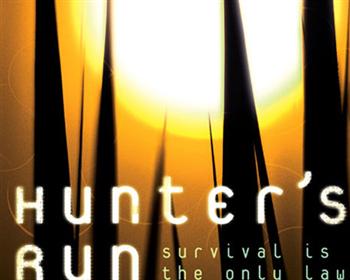An update has happened since this article went live yesterday:
Facebook.com CEO Mark Zuckerberg today announced that the students had won their protest, admitting: “we really messed this one up”.
His announcement responds to the huge student protest which has been growing on the internet over the last 48 hours. Members of student community networking site Facebook.com have been outraged by the introduction of a feature which they claim to be an intrusion of privacy. Today Zuckerberg claimed the whole idea had clearly been “a big mistake” and he apologised on behalf of the company.
The announcement comes as the membership of the biggest protest group on the site, Students against Facebook News Feeds, reached a staggering 750,000 people. It is reported that at peak popularity, membership had been increasing at a rate of 10 people every six seconds. Such numbers indicate the strength of student anger felt across the multi-national Facebook community.
It also perhaps indicates that protests of the future will take to the internet rather than the streets.
—– original article —–
A swath of anger towards the website Facebook.com has emerged on both sides of the Atlantic in the last 48 hours which threatens to halt the success of one of the most popular internet social networking site for young people available today.
British university students are among the hundreds of thousands of protestors from across the world who are becoming part of the most wide-spread, and fastest-growing, student protest of this generation.
Facebook gained its popularity originally through its exclusivity. It started to spread through the Ivy League Universities in America before crossing the Atlantic to the UK and spreading quickly, often due to the availability of networked rooms in student halls. Facebook recently opened to certain schools, and has just started a work network for university leavers who wish to use Facebook to get to know their fellow young co-workers. These additions bring the total number of users to nearly 9 million, although this has already alienated those members who sought out Facebook for its exclusivity. As such Facebook’s popularity is probably at its peak right now, and this makes the student protest all the more important.
On Monday morning, Facebook.com introduced their newest update to the site: a News Feed and a Mini News Feed, which automatically posts all its users most recent movements and actions up for all of the user’s friends to see. These actions range from the mundane, such as “Bill messaged Sarah” or “Sarah has added hockey to her favourite sports”, to the downright intrusive, such as “Bill and Sarah broke up”. It is this detailed listing which has infuriated its members, who claim it is a compromise of privacy and is just too close for comfort.
Not long after the Feeds were introduced, one of the first of numerous groups protesting against the feeds was set up by a student at Northwestern University, USA. Ben Parr set up his group “Students against Facebook News Feeds” in the morning of Tuesday 5th September and in the first 24 hours nearly 250,000 people signed up to the protest.
Parr claims his group’s membership is increasing in number by over 25,000 per hour. The fast-spreading and multi-national nature of the membership of Parr’s group, and other protest groups against the Feeds, has led to comparisons between this sudden uproar and the vigour of the student revolution of the 1960s. Most recently, anti-Facebook merchandise has become available to buy over the internet, including badges with the slogans “I’m creeped out by the new Facebook” and Orwellian “Facebook is watching you”.
As well as having a substantial British membership to Parr’s group, numerous other protest groups based around the British student community have sprung up. These include “Facebook Feeds are Ridulous”, based in Edinburgh, and “Restore Facebook”, based in St Andrews. These groups have members from universities across the UK.
The protest against Facebook has made national news in America, with commentators clearly surprised that a generation whose lives have become saturated by reality TV and an ever-expanding internet could have such strong feelings towards protecting their privacy. Yet it is also now clear that the generation of teenagers and twenty-somethings have very clear ideas as to what is acceptable and what is not. For example, posting information yourself is fine because it is an active choice. Facebook Feeds, however, broadcast even the most minor of changes and the most sensitive of information, for example whether or not someone has broken up with their partner, to everyone inside the network. It appears to be this lack of control over the display of private information that has upset the website’s members.
Certainly students are forcing Facebook to take this protest seriously. The speed and quantity of negative reaction was so strong that Facebook CEO Mark Zuckerberg issued a statement on his internet blog. In it he asked that students “calm down and breathe” and suggesting that students give the new system a try before responding. He did not announce any changes although he did comment that the feedback was still welcome.
Students clearly feel that the Feeds are unnecessary and that a website which already had a reputation for enabling stalking – one of Facebook’s nicknames is Stalkerbook and recently Oxford University warned it’s students not to openly support the building of an animal laboratory in case animal rights activists were monitoring profiles or following students – has taken a step too far. For a generation already very aware of the dangers of posting too much personal information on the internet, this step has the potential to alienate many users and even draw the Facebook phenomenon to an early end.

